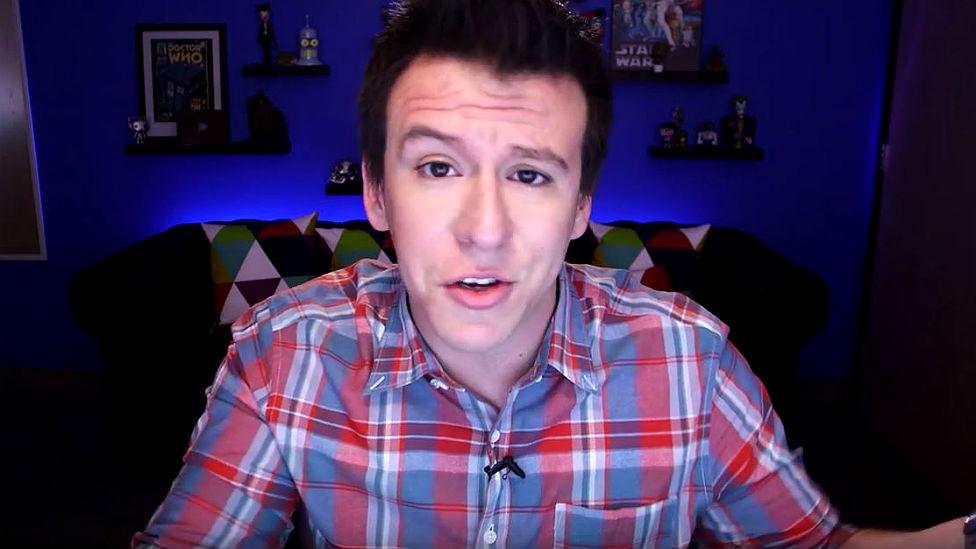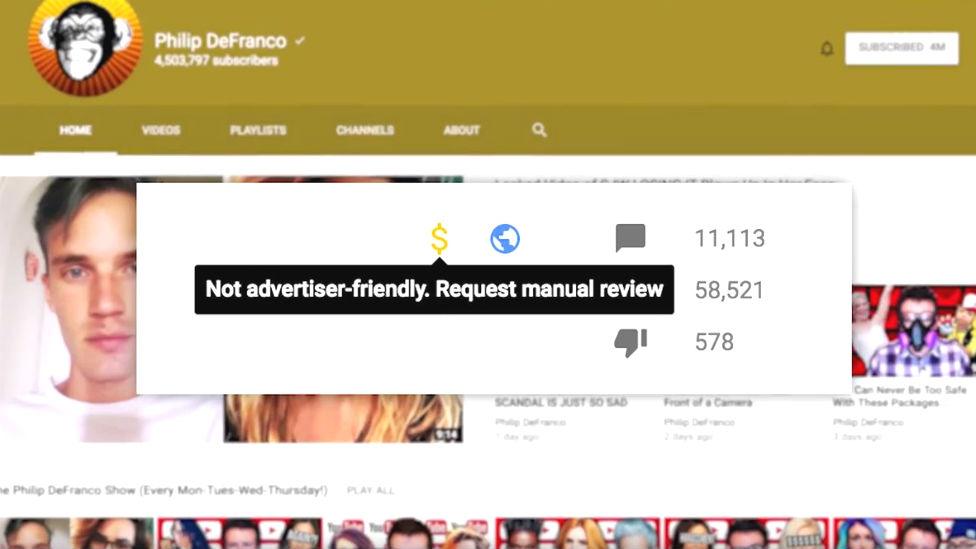YouTube defends rules on which videos can make money from adverts
- Published

A popular YouTube star claims he will stop making money from his videos if he fully sticks to the site's terms and conditions.
Philip DeFranco says he has received warnings from the site about his videos.
YouTube has told Newsbeat it's now alerting users to what it considers inappropriate content via email.
It says nothing has actually changed in its guidelines over what videos can be monetised.

Philip DeFranco has posted a video titled "YouTube Is Shutting Down My Channel and I'm Not Sure What To Do".
In it, he says he believes his language and the topics he covers have led his videos to be flagged as "not advertiser friendly".
He details all this in a new video (which does have adverts in it, despite some language which could definitely be considered not-advertiser friendly).
Here is his latest video., external
Warning: Third party content may contain adverts and/or offensive language
The video that has been flagged by YouTube is a critical piece about a woman called Annaliese Neilson, who recently attempted to "shame" a taxi driver in the US for having a model of a Hawaiian hula dancer on his dashboard.
The video includes some swearing, a discussion about cultural appropriation along with mentions of Islamic State and Brock Turner, the US student found guilty of sexual assault.
Watch his flagged video here., external
Warning: Third party content may contain adverts and/or offensive language
In YouTube's advertiser-friendly content guidelines, external, the firm states that "inappropriate language, including harassment, swearing and vulgar language" is classed as content considered inappropriate for advertising.
Other content which gets flagged includes sexual humour, partial nudity, violence, promotion of drugs and "subjects related to war, political conflicts, natural disasters and tragedies, even if graphic imagery is not shown."
YouTube videos are checked for copyright infringement on upload and again by monitoring staff if reports are made by viewers.
Google tells Newsbeat that there is no change to the terms and conditions, it's just the way it is now reminding uploaders to stick to the rules.
"While our policy of demonetising videos due to advertiser-friendly concerns hasn't changed, we've recently improved the notification and appeal process to ensure better communication," says a spokesman.
Arin Hanson of YouTube gaming channel GameGrumps explained this in simple terms on Twitter.
He explains YouTube have only changed the wording of their guidelines., external
Arin says problems are now more clearly explained, external and that content has always been flagged by YouTube as unsuitable for advertisers.
Find us on Instagram at BBCNewsbeat, external and follow us on Snapchat, search for bbc_newsbeat